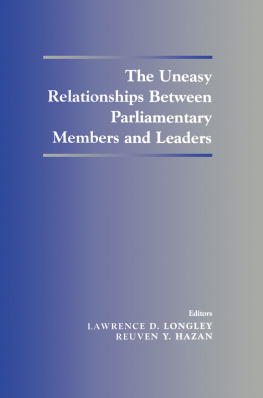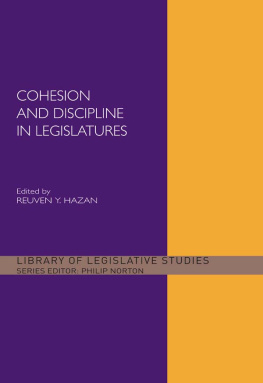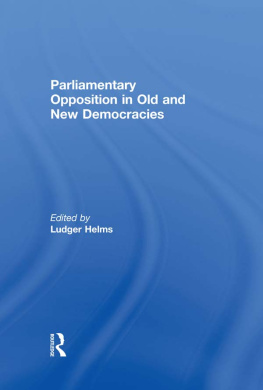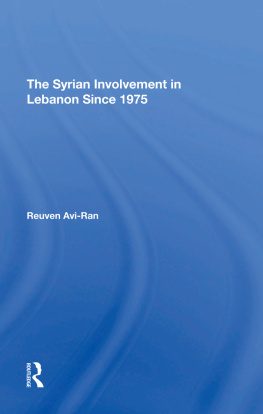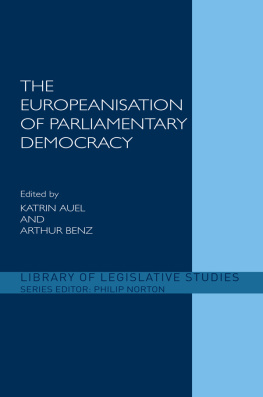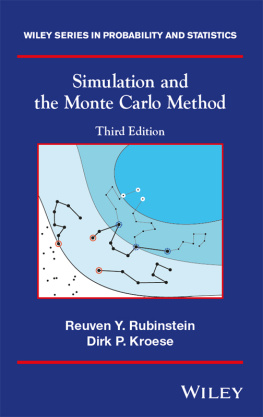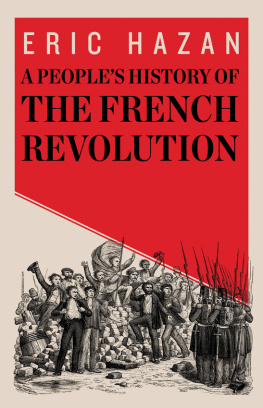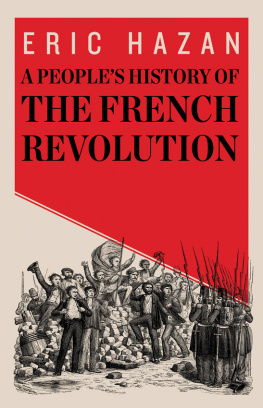THE UNEASY RELATIONSHIPS BETWEEN PARLIAMENTARY MEMBERS AND LEADERS
THE LIBRARY OF LEGISLATIVE STUDIES
General Editor
Philip Norton
ISSN 1460-9649
A series of new and recent books exploring the role of legislatures in contemporary political systems. The volumes typically draw together a team of country specialists to provide in-depth analysis.
Parliaments in Contemporary Western Europe
edited by Philip Norton
Volume 1: Parliaments and Governments in Western Europe
Volume 2: Parliaments and Pressure Groups in Western Europe
Volume 3: Parliaments and Citizens in Western Europe
Parliaments in Asia
edited by Philip Norton and Nizam Ahmed
Conscience and Parliament
edited by Philip Cowley
The New Roles of Parliamentary Committees
edited by Lawrence D. Longley and Roger H. Davidson
Members of Parliament in Western Europe: Roles and Behaviour
edited by Wolfgang C. Mller and Thomas Saalfeld
Parliaments in Western Europe
edited by Philip Norton
The New Parliaments of Central and Eastern Europe
edited by David M. Olson and Philip Norton
National Parliaments and the European Union
edited by Philip Norton
The Uneasy Relationships between Parliamentary Members and Leaders
Editors
LAWRENCE D. LONGLEY
REUVEN Y. HAZAN
First published in 2000 by
FRANK CASS AND COMPANY LIMITED
This edition published 2013 by Routledge
2 Park Square, Milton Park, Abingdon, Oxon OX14 4RN
711 Third Avenue, New York, NY 10017
Routledge is an imprint of the Taylor & Francis Group, an informa business
Copyright 2000 Frank Cass & Co. Ltd
British Library Cataloguing in Publication Data
The uneasy relationships between parliamentary members and leaders. (The library of legislative studies)
1. Political leadership. 2. Party affiliation
I. Longley, Lawrence D. (Lawrence Douglas), 1939- II. Hazan, Reuven Y., 1962-
324.22
ISBN 0 7146 5059 5 (hb)
ISBN 0 7146 8110 5 (pb)
ISSN 1460-9649
Library of Congress Cataloging-in-Publication Data
The Uneasy relationships between members and leaders / editors Lawrence D. Longley, Reuven Y. Hazan
p. cm. (Library o f legislative studies, ISSN 1460-9649)
Includes index.
ISBN 0-7146-5059-5 ISBN 0-7146-8110-5 (pbk.)
1. Legislators. 2. Legislative bodiesLeaaership. I. Longley, Lawrence D. II. Hazan, Reuven Y., 1962 III. Series.
JF511. U54 2000
328.36dc21
99-058945
This group of studies first appeared in a Special Issue of Journal of Legislative Studies (ISSN 1357-2334), Vol.5, Nos.3-4 (Autumn/Winter 1999), [The Uneasy Relationships between Parliamentary Members and Leaders].
All rights reserved. No part of this publication may be reproduced, stored in a retrieval system, or transmitted in any form, or by any means, electronic, mechanical, photocopying, recording or otherwise without the prior written permission of the publisher.
Contents
Lawrence D. Longley and Reuven Y. Hazan
Werner J. Patzelt
Philip Norton
John E. Owens
Fiona Barker and Stephen Levine
Lawrence D. Longley and Taylor M. Hoffman
Stanley Bach
Kaare Strm and Wolfgang C. Mller
Barbara Sinclair
Reuven Y. Hazan
LAWRENCE D. LONGLEY AND REUVEN Y. HAZAN
Lawrence D. Longley is Professor of Government at Lawrence University, USA. Reuven Y. Hazan is a Lecturer in the Department of Political Science at the Hebrew University of Jerusalem, Israel.
Appreciation is expressed to Brian Rosenberg, Dean of Faculty of Lawrence University, for his generous support for the compilation and editing of this work.
A young English schoolboy once asked his chum, What does the Queen do? The response from his friend was definite: She Queens. Similarly and equally simplistically we could answer the question What does a parliamentary leader do? with He leads (and presumably we could also define the roles and tasks of the rank and file parliamentary member as He follows). Yet it does not require much reflection beyond that of the young English school chums to conclude that the uneasy relationships between parliamentary members and leaders involve more than leaders exercising leadership and members engaging in fellowship. The delicate balance between parliamentary members and leaders is the subject of this publication and the focus of the nine original explorations of various aspects of these uneasy relationships, authored by 12 scholars from seven countries of the world, which follow.
THE DELICATE BALANCE
In order to get to grips with the uneasy relationships between parliamentary members and leaders, we need to do more than just accumulate descriptive accounts although thick descriptive studies may allow us better to appreciate the complexities of the delicate balances involved.
Elsewhere we have argued more generally that:
Ticking off particular features [and] reminding readers and listeners of the complexities of the situation and the unique features of each country and system may not lead to a great deal of cumulation. More general propositions about parliamentary roles can and must be formulated. Such propositions, even if proven wrong or at least applicable only to certain circumstances, would focus empirical work on clear and hopefully testable propositions, the testing of which would then provide a more detailed understanding.1
Creating more general propositions and generalisations which can transcend the specific example is no easy task. As US congressional scholar Barbara Sinclair, reflecting on the difficulty in generalising about the opportunities of the individual parliamentary member, puts it: The trick is to find a focus that provides a handle on the theoretical questions of interest and that will allow for generalizations of theoretical interest while still making room for and encouraging sensitivity to the contextual differences among legislatures and countries.2
Norwegian parliamentary scholar Kaare Strm suggests such a focus may lie in a careful mapping of legislative roles, including those of parliamentary leaders and followers:
Legislative roles, I hold, can be viewed as behavioral strategies conditioned by the institutions in which parliamentarians operate. Roles are routines, regular patterns of behavior that may be shaped by cultural expectations as well as by personal idiosyncrasies. Yet, they are most likely of all to flow from the reasoned and deliberate pursuits of parliamentarians: goal-seeking men and women who chose their behavior to fit their goals. In so doing, they have to pay close attention to the institutions in which they operate. The institutional features that most matter are partly those of the legislature itself, but also those of their national and local parties, as well as the rules of the electoral process. Parliamentary roles, therefore, are strategies, driven by preferences, and constrained by rules [emphasis in original].3
What, then, are some of these regular patterns of behaviour of parliamentary leaders and members? How are these legislative roles dictated by position and resulting preferences and rules? In short, what are some of the behavioural strategies exhibited by leaders as leaders of a legislative institution and by members, not serving in leadership capacities, of that same institution?4

